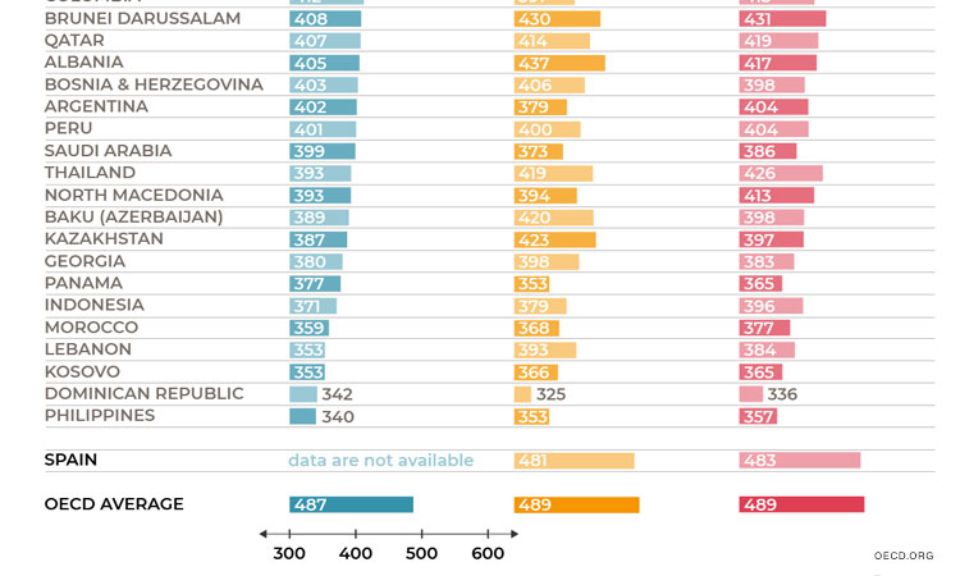
Last 2019, the Philippines has just discovered that it is the lowest-ranked in terms of math, reading, and science. If you want to check the article, it’s over here.
The Philippine education system’s mediocrity is posted everywhere: CNN, Rappler, Inquirer, and probably every bloody news outlet in the Philippines. So, it’s pretty sure it ain’t fake news.
But it’s not surprising that Filipinos ranked so badly in reading comprehension. It’s quite obvious when people read posts on Facebook. People are so quick to assume by just reading the headline. Another is they ask how much the item is and then don’t realize that the price is written right in the post. Then if called out, Filipinos would resort to smart shaming rather than accept that they made a mistake. Or worse, some Filipinos get targetted by trolls who would prefer to smart shame.
Then, there’s Math. While yes, a person’s whole life’s existence shouldn’t be measured on how well they can do the math. But people ought to be capable to do simple equations. No need to do Calculus. Know at least what 1 + 1 is.
Then, there’s Science. With the whole Dengvaxia scare, people are now becoming anti-vaxxers. While there’s nothing wrong in relying on wholesome, herbal medicines (because they have components that are useful), there is something wrong however in believing that a Himalayan salt lamp will ward away the Corona Virus (covid-19). So, it’s no surprise either that the Philippines ranks badly in Science too.
So that begs the question: Where in the world did Philippine education go wrong?
Priorities: What does Philippine Education prioritize?
The problem here in the Philippines is that they reward the student who can memorize the most. Rarely, they focus on a student’s ability to understand the subject (Lugtu Jr., 2018). And if one follows the theory of Pavlov of Classical Conditioning, an act that is commonly rewarded will always be repeated. So in this case, let’s look at exams. There’s an exam which has a scoring system. Now, there’s nothing wrong with putting scores. That’s called standardization. It’s how the exam is made. The questions are often done in multiple-choice, identification, fill in the blanks, and matching type.
And what’s common in all those kinds of tests?
It requires a student to memorize.
Studies have already proven that memorization doesn’t work. It just doesn’t cut it. A person can barf out all the information but when asked to apply it, they probably won’t have the slightest clue! When it comes to skill-related work, students find themselves at a loss and realize that school taught them nothing. And when it comes to reviewing, students would go through an info-dump.
Having to memorize also discourages a student’s creative thinking. While it does get them creative in coming up with ways to memorize the facts, it doesn’t challenge their ability to mould the knowledge to their advantage. Filipino schools have often just resigned themselves to churning out graduates to fill the workforce only to encourage mediocrity in education and quash the desire to improve.
But even the big schools have tests that prioritize memorization!
True, the top three schools have tests like that. They literally throw every sort of question in an applicants’ way either out of sheer sadism that they like seeing people clamber and claw or that’s their way of seeing how well a person “understands” the knowledge they had in high school. But then again, those with the capability to understand the question can do just as good and if not better than those who went through an info-dump. They understand where the concept comes from and they can manipulate the knowledge to their advantage. Whereas those who memorized, to them, the knowledge is an “as-is-where-is” basis type of thing. So some questions that require deeper comprehension may escape them.
But this is why info-dumps are not the way to go. You can info-dump a person and they’re not going to get anywhere. That’s why teachers need to change their styles. Students also need to change their priorities. They need to find teachers who get them. They need to find teachers who will help them comprehend and understand the subject matter, not shove it down their throats. And most of all…
They need teachers who will get them to look AHEAD.